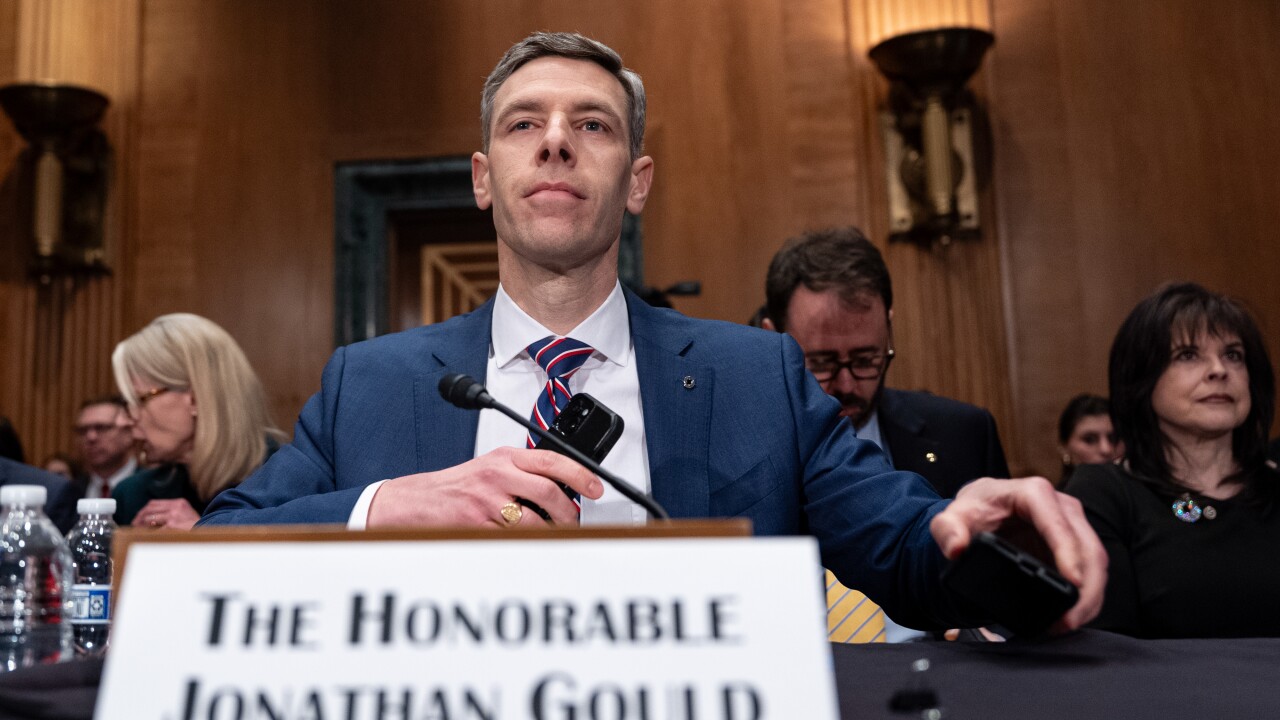The Independent Community Bankers of America and the Credit Union National Association sent a joint letter to the Financial Accounting Standards Board urging changes to a proposal to alter how financial institutions establish reserves for loan losses.
FASB should make significant concessions to financial institutions' concerns with the proposed Current Expected Credit Loss model for loan-loss reserves, also known as CECL, the groups said in a letter to FASB Chairman Russell Golden. Backers of the proposal, which would require financial institutions to set aside reserves when a loan is made instead of waiting for the likelihood of default, believe it would help prevent institutions from being under-reserved in the event of a new financial crisis.
Bankers and credit union executives support the concept of requiring provisioning earlier in a loan's life cycle, but the way the FASB has proposed this policy be implemented has raised concerns.
-
Several bankers left a high-profile meeting with the Financial Accounting Standards Board feeling more comfortable with a plan to change reserve accounting. The meeting was thrown into an abrupt recess after a FASB director and a bank lobbyist clashed over recent statements by FASB's chairman linking community banks to the financial crisis.
February 4 -
Trade groups for both industries put aside differences to seek congressional signatures on a letter urging FASB to reconsider its controversial proposal requiring early-stage loan-loss provisioning.
February 2 -
The American Bankers Association has gone public with its issues with a plan to require banks to record loan-loss provisions when they originate a loan. Bankers are worried that the rule will eventually force smaller institutions to use costly modeling programs to comply.
January 22
"When proposed GAAP puts our diverse economic models at risk, families, communities, and the entire nation begin to suffer," the ICBA and CUNA said. "We believe that without simple, straightforward, but significant amendments … CECL will amplify these risks and could result in significant economic suffering."
Community banks and credit unions are concerned CECL would force them to incur costs tied to economic modeling and making financial projections. Regulatory agencies have also warned that the changes would "materially increase" financial institutions' loan-loss allowances, the ICBA and CUNA said in the letter, which was also sent to the heads of all federal banking and credit union regulators.
Publicly traded institutions would become subject to the proposed FASB rules in late 2018. Privately traded institutions and credit unions would fall under its requirements a year later.





